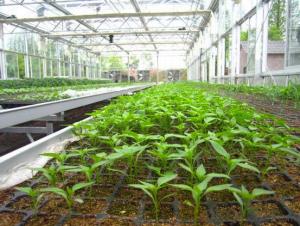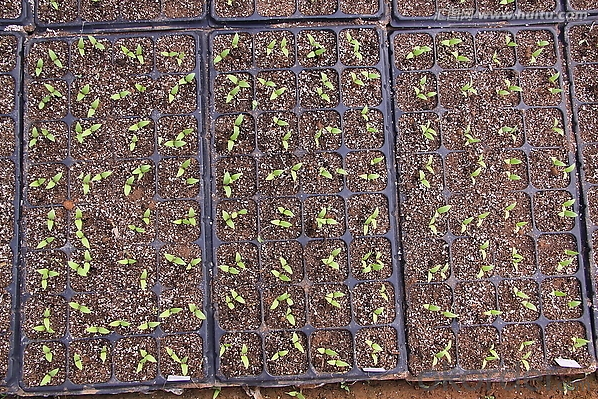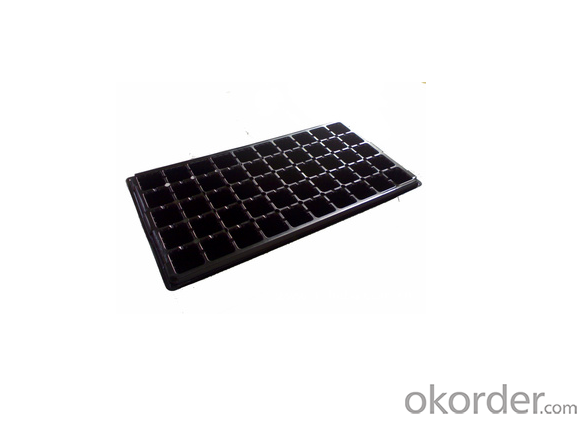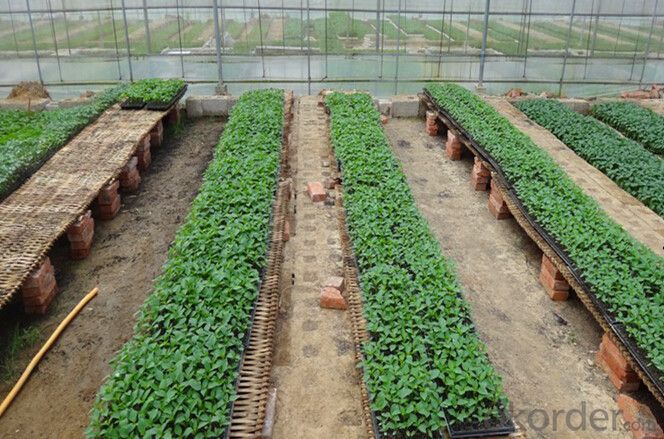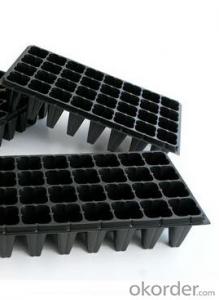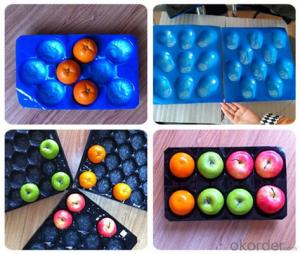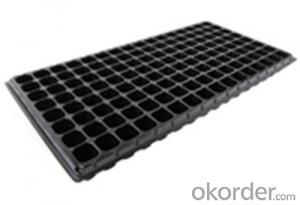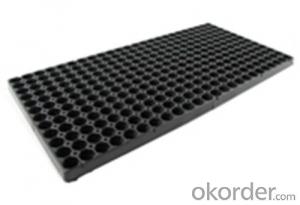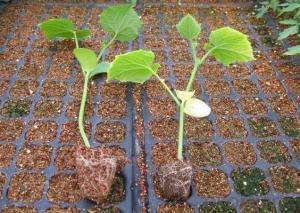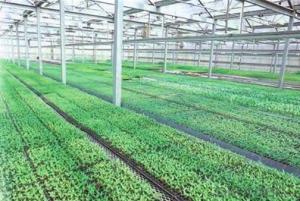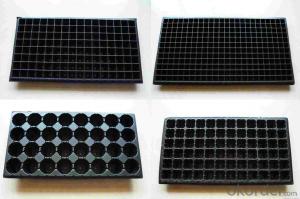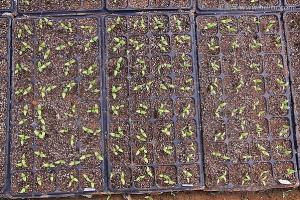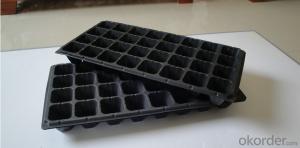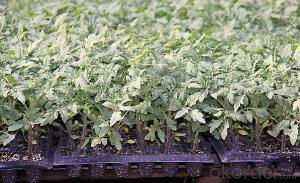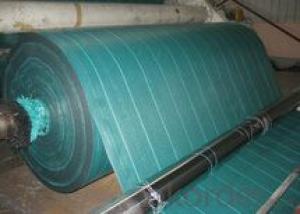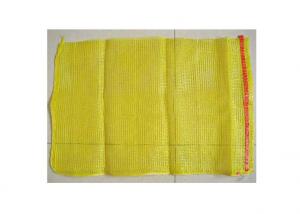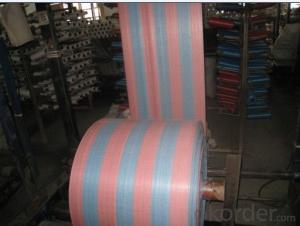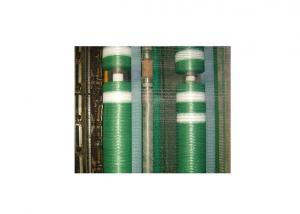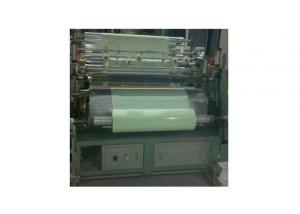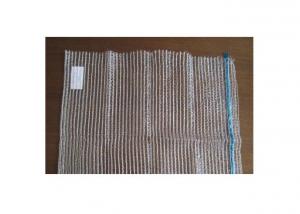(Growing and Seedling) Plug Trays Greenhouse Usage HIPS Made Plastic
- Loading Port:
- China main port
- Payment Terms:
- TT OR LC
- Min Order Qty:
- 3000 pc
- Supply Capability:
- 50000 pc/month
OKorder Service Pledge
OKorder Financial Service
You Might Also Like
Brief Introduction to CNBM:
CNBM International Corporation (CNBM International) is the most important trading platform of CNBM Group Corporation, a state-owned company under the direct supervision of State-owned Assets Supervision and Administration Commission of the State Council.
CNBM International is highly recognized by its business partners and clients all over the world and has obtained rapid development under the spirit of win-win. We will carry on the mutual beneficial, innovative and revolutionary trading structure as we did before, create value for our employees, share holders and clients and benefit the whole society in our future development.
Features of Plug Trays (Growing and Seedling) HIPS Made Plastic Plug Tray for Greenhouse:
· Material: HIPS
· Thickness: 0.5mm-1.5mm, Standard:1mm
· Weight: 80g(±5)g-230g(±5)g, Standard weight:155g(±5)g
· Size: length:490mm-540mm, width:190mm-345mm,depth:25mm-150mm
· Standard:540mmX280mm
· Cell count: 18-512
· Package: In Carton
· Warrenty: 8-10 times
Picture:
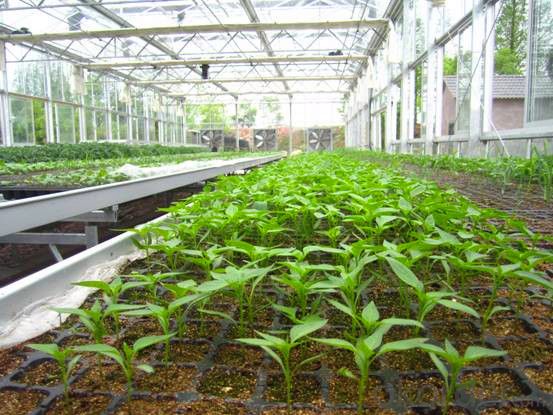
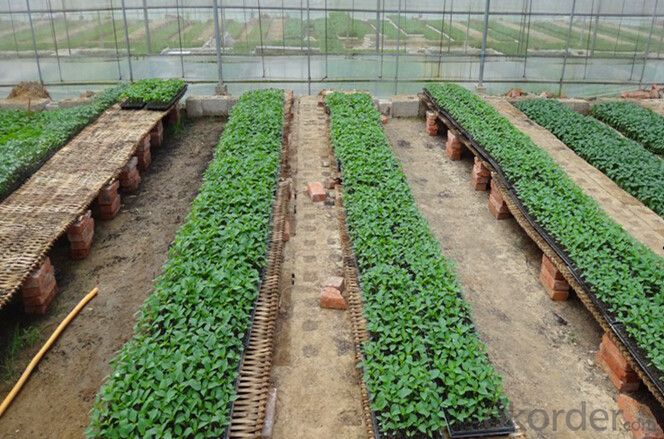
Specification of Plug Trays (Growing and Seedling) HIPS Made Plastic Plug Tray for Greenhouse:
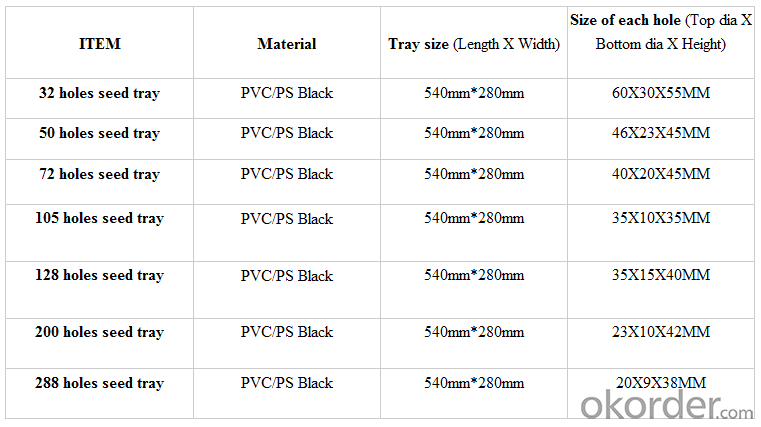
FAQ of Plug Trays (Growing and Seedling) HIPS Made Plastic Plug Tray for Greenhouse:
Q:1.How many times can the seed tray be used?
A: Under the same environment, it is decided by the thickness. Usually 0.6mm thickness can be used for 1 or 2 times.
1.0 thickness can be used for 3-4 times. 1.5 thickness can be used for 8-10 times.
Q: 2.How long is the production time?
A: Usually one to two weeks.
Q: 3.How is the seed tray being packaged?
A: They can be packaged in carton or pallets. Carton size is 1375px*725px*1250px.
- Q: i have fished like for 7 years but have never used plastic worms how do u fish them?
- I know you're supposed to use fairly large fake worms that cover the whole hook. You want to reel it in so that it looks like the worm is swimming. I get much better luck with live worms and a bobber though. With a bobber, just hook on a worm about 3 feet from the bobber, cast out, and wait to see the bobber be pulled under.
- Q: Is acrylic (like the 1/4quot; acrylic sheets from home depot) a kind of plastic and can it be melted easily? i want to shape a sheet of it with a heat gun... and can it be painted easily using spray paints for plastic?
- It is a plastic. It can be painted with the right type of paint. Whether itcan be shaped with heat, i can not answer.
- Q: This question asks about the methods farmers use to safeguard their crops from pests and diseases by employing biodegradable seedbed mats.
- <p>Farmers protect crops from pests and diseases using biodegradable seedbed mats by creating a physical barrier that prevents soil-borne pests and pathogens from reaching the seedlings. These mats suppress weeds, reducing competition for nutrients and water, and can also be impregnated with organic pesticides or beneficial microorganisms to further protect the plants. As the mats degrade, they release nutrients into the soil, enriching it and promoting healthy plant growth. This eco-friendly approach not only protects the crops but also contributes to sustainable farming practices by reducing chemical use and soil erosion.</p>
- Q: What are the advantages of using plastic seed spreaders for efficient seeding?
- Plastic seed spreaders offer several advantages for efficient seeding. Firstly, they are lightweight and easy to carry, allowing for smooth and effortless distribution of seeds across a large area. Additionally, plastic seed spreaders are durable and resistant to corrosion, ensuring a longer lifespan compared to metal alternatives. Moreover, their adjustable settings provide precise control over seed dispersion, allowing for accurate and even coverage. Finally, plastic seed spreaders are typically more affordable than other options, making them a cost-effective choice for both small-scale gardeners and large agricultural operations.
- Q: Are nursery trays suitable for growing shade-loving plants?
- Yes, nursery trays are suitable for growing shade-loving plants. Nursery trays provide a controlled environment for plants, allowing them to germinate and grow with proper care. Shade-loving plants thrive in low light conditions, and nursery trays can provide the necessary shade to create an ideal growing environment for these plants.
- Q: have you ever tasted plastic i mean what does it really taste like?...........
- like chewing it, or just licking it? well, i've never chewed it but when i drink water form a water bottle, i run my tongue around the rim. It tastes smooth, and plasticy. :D
- Q: What are the different types of agricultural plastic sheets?
- There are several different types of agricultural plastic sheets, including greenhouse films, mulch films, silage films, and shade nets.
- Q: What are the rules or laws governing the use of plastic products in agriculture?
- <p>Yes, there are regulations on the use of agricultural plastic products. These regulations vary by country but generally aim to reduce environmental impact, promote recycling, and ensure safety. For instance, the European Union has implemented regulations like the Single-Use Plastics Directive, which targets the reduction of plastic waste in agriculture. In the United States, the Food and Drug Administration (FDA) oversees the safety of plastic materials that come into contact with food. Additionally, many regions have specific guidelines for the disposal and recycling of agricultural plastics to minimize pollution. Compliance with these regulations is crucial for agricultural businesses to operate legally and sustainably.</p>
- Q: I'm currently searching for new glasses, and to save money I was thinking of getting plastic lenses instead of polycarbonate. I know polycarbonate is shatter proof, but I already have a pair of beat up polycarbonate eye glasses that I use for sports/play. The plastic lense glasses would strictly be used just for casual things.Also, I have somewhat of a high prescription (-3.00, and -3.50), do you think the lenses would be very thick? I'm thinking of getting thick preppy designer frames, so I doubt it's very noticeable... Is there anything else I need to know about plastic lenses? Any tips? Further warnings I should know about? Give me your recommendation please!
- If you can get a scratch-resistant coating then that would be better. Also, they can cut off the edge so it doesn't look as thick. I think they call it rolling the edge. Of course both cost more. I have high-index plastic in a metal frame that isn't very wide and they look okay. I am about three times as blind as you are too. Plain plastic will be much thicker. You ought to go to a eyeglass place and ask them to show you how thick plastic lenses in your prescription will be. You don't have to buy any that day or even at that place. But then you can see about what you will be getting, and it won't cost you anything to see.
- Q: Are there any ground cover plants that are suitable for sandy clay loam soils?
- Yes, there are several ground cover plants that thrive in sandy clay loam soils. Some suitable options include creeping thyme, creeping phlox, sedum, and creeping juniper. These plants are well-adapted to the specific soil conditions and can provide effective ground cover in sandy clay loam soils.
Send your message to us
(Growing and Seedling) Plug Trays Greenhouse Usage HIPS Made Plastic
- Loading Port:
- China main port
- Payment Terms:
- TT OR LC
- Min Order Qty:
- 3000 pc
- Supply Capability:
- 50000 pc/month
OKorder Service Pledge
OKorder Financial Service
Similar products
Hot products
Hot Searches
Related keywords
